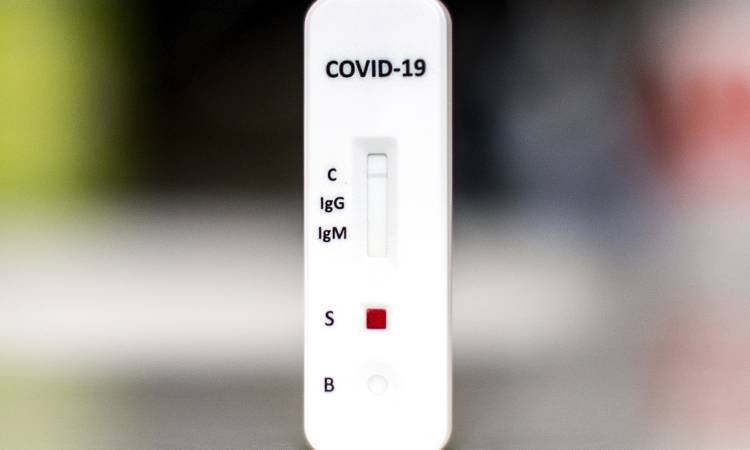
Profile
Sections
tv
Featured
More From NBC
Follow NBC News
There are no new alerts at this time
People who test positive for Covid should still isolate for five days, according to the Centers for Disease Control and Prevention, even though many Americans are already ignoring the policy. That guidance is likely to change at some point, however.
Following reports that the CDC was considering easing Covid isolation restrictions — including guidelines that people can leave their homes after being fever-free for 24 hours — the agency refused to confirm that such plans were in the works. The potential change was first reported by The Washington Post.
But an official at the Department of Health and Human Services who asked not to be identified said federal health officials are considering relaxing Covid isolation guidelines, although the discussions are at an early stage and no definitive decisions have been made.
“It’s way too preliminary,” the source said. There’s “lots more consultation to be had.”
The CDC is looking at changes to its overall Covid guidance, which could include recommendations about masking as well as isolation, said a public health official who was involved with a recent call with the CDC. The CDC currently recommends masking for 10 days following a Covid diagnosis.
There’s no evidence that the virus that causes Covid has evolved to become less dangerous or contagious. What has changed is Americans’ attitudes about Covid restrictions. People are no longer willing or able to spend a week out of work or school because of Covid, experts say.
Dr. William Schaffner, an infectious diseases expert at Vanderbilt University Medical Center in Nashville, Tennessee, said he and his colleagues have privately encouraged the CDC to drop the five-day isolation period, in part because there’s little evidence it’s stopping the spread of Covid.
The “rigorous recommendations that are currently in place do not reflect common practice,” Schaffner said. “It’s difficult to demonstrate that strict isolation has had a notable impact on transmission.”
California and Oregon have already broken with the CDC, suggesting that people don’t need to stay home if they’ve been fever-free for 24 hours without medication.
“With each day, the risk of communicability diminishes,” Schaffner said. “Public health recommendations have to be practical.” That is, people may stay home for a few days if they have a fever and feel achy and fatigued. After that, it’s back to business as usual.
Dr. David Margolius, the public health director for the city of Cleveland, said he was also in favor of easing isolation restrictions.
“For a couple years, people really associated public health with the elimination of Covid,” Margolius said. But “public health is about increasing life expectancy for our residents. It’s about improving quality of life. And that is more than just controlling one virus.”
Covid is still contagious, said Dr. Abraar Karan, an infectious disease physician at Stanford Medicine. “What the CDC and health departments are trying to say is that we need to have policies that people are going to actually follow,” Karan said.
As of this month, emergency room visits, hospitalizations and deaths from Covid are down, according to the latest CDC data.
In a statement, the CDC said it had “no updates to Covid guidelines to announce at this time,” adding that it would “continue to make decisions based on the best evidence and science to keep communities healthy and safe.”
Erika Edwards is a health and medical news writer and reporter for NBC News and “TODAY.”
Berkeley Lovelace Jr. is a health and medical reporter for NBC News. He covers the Food and Drug Administration, with a special focus on Covid vaccines, prescription drug pricing and health care. He previously covered the biotech and pharmaceutical industry with CNBC.
© 2024 NBC UNIVERSAL







